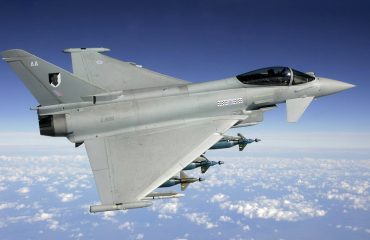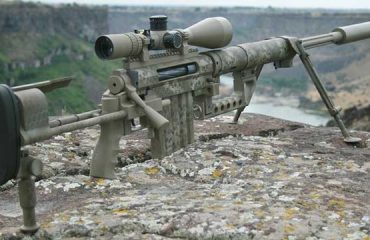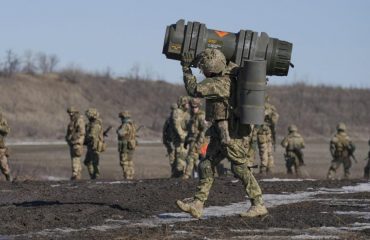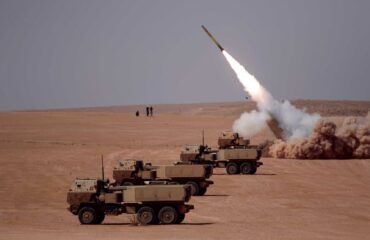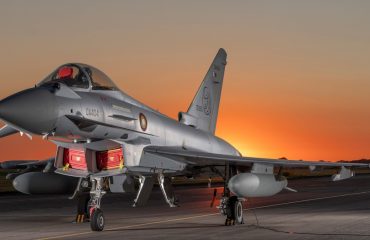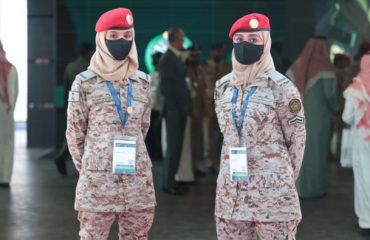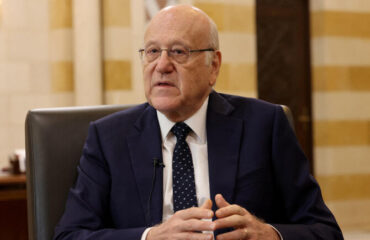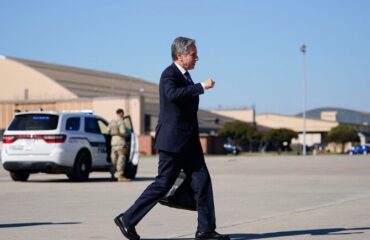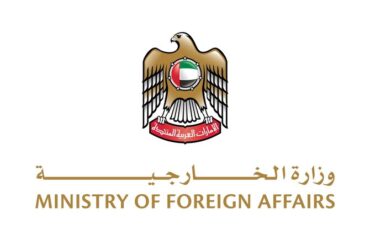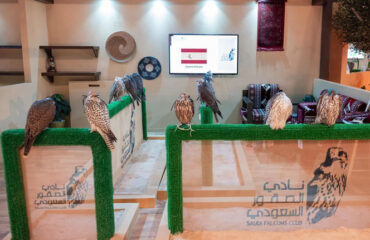Here Are The First Four F-15QA Eagle Jets For The Qatar Emiri Air Force

The first F-15QA (Qatar Advanced) combat aircraft for the Al-Quwwat Al-Jawiyyah Al-Amiriyyah Al-Qatariyyah (QEAF, Qatar Emiri Air Force) are on delivery to Qatar. Flying as RETRO 61-64 the four aircraft departed St. Louis International Airport on Oct. 27, 2021 and made an unplanned stop (due to issues with their KC-10 Extender supporting tanker) in Bangor, before continuing to RAF Mildenhall, UK, where they landed on runway 28, on Oct. 28, 2021 at 15.38LT.
The F-15QA have not been given the national insignia that will be applied upon delivery: the jets making the stopover in the UK had a small low-visibility U.S. Air Force roundel under the canopy rail.
Boeing was awarded a contract to manufacture 36 F-15QA fighter jets for the Qatar Emiri Air Force (QEAF).
As we previously wrote, the F-15QA (Qatar Advanced) features new outer wing hardpoints for increased payload, AN/APG-82(V)1 Advanced Electronically Scanned Array (AESA) radar, Joint Helmet-Mounted Cueing Systems (JHMCS) for both the pilot and the Weapon Systems Officer (WSO), 10×19-in Large Area Displays (LADs) and low-profile Head-Up Display (HUD) in both cockpits, digital fly-by-wire and General Electric F110-GE-129 engines.
A new feature that equips the F-15QA is the Missile Approach Warning System (MAWS) sensors at the end of the tail booms and below the cockpit. Officially, it’s not known which MAWS system and self-defense suite has been installed in the aircraft, however we can see from the photos that the sensor is very similar to the AN/AAR-57A(V) Common Missile Warning System (CMWS) produced by BAE Systems that could be most probably coupled with the AN/ALQ-239 Digital Electronics Warfare Systems (DEWS), also produced by the same company.
Earlier this year, on May 18, 2021, the Boeing F-15QA tail code 0010 (QA010/17-0010), one of the airframes accepted by the Air Force from Boeing and being flow by two U.S. active-duty pilots, was involved in a ground ejection incident at MidAmerica St. Louis Airport. The aircraft departed the runway and the two crew members, one from the U.S. Air Force and one from the U.S. Navy ejected safely and received minor injuries.

The aircraft involved in the mishap was quickly recovered but its current status is unclear: although the airframe seemed to be pretty intact, the damage to the glass cockpit, as a consequence of the ejection seat rockets, would have to be assessed.
Final approach.





